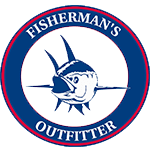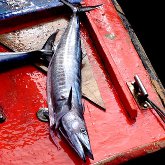Wicked Tuna: Bluefin Experts: Molly Lutcavage
May 1, 2012Fishing for Sturgeon
May 12, 2012There’s nothing quite like reeling in your catch, firing up the grill, and creating a simple, fresh, mouthwatering feast right there on the shoreline. But wait! Have you ever stopped to consider what, exactly, that the fish in your cooler have been eating during their lifetime? It’s not something most of us like to think about, but when we eat a fish, we’re also eating everything that fish has ever eaten – and that can include pollutants like mercury, pesticides, and other contaminants.
Luckily, there are steps we can all take to avoid taking in too many of these unpleasant and unhealthy substances while still enjoying the culinary benefits of a day out on the water. Here’s a list of things you can do to reduce your exposure to contaminants in the fresh fish you eat:
- Eat less of the following fish, which often contain high levels of mercury: largemouth and smallmouth bass, northern pike, pickerel, walleye, and yellow perch longer than 10″.
- American eel, bluefish, carp, lake trout, Chinook and coho salmon, striped bass, weakfish, white and channel catfish, and white perch tend to have higher levels of PCBs, dioxin, mirex, DDT, chlordane, and dieldrin than other fish, so grill these up in moderation.
- Fish exposed to pollutants and other contaminants tend to store them in fat, so trimming the skin and fat from fish before cooking and using cooking methods that allow melted fat to drip away can reduce your exposure significantly.
- Mercury, however, is stored in the muscle tissue of fish. There are many guides online that list fish with the highest mercury levels. Eat these sparingly or throw them back to catch another day.
- Some bodies of water that have been shown to be contaminated will have prominently displayed warnings along the shoreline or in guides. Catch and release fishing is the smart choice in areas where fish may be exposed to pollutants. Better yet, fish in areas where there are no warnings.
- Choose smaller fish that are lower on the food chain, since smaller fish have often had less time to accumulate contaminants and fish that are lower on the food chain consume fewer contaminants.
- Practice food safety with your catch. Keep freshly caught fish cold, wear gloves when doing your skinning and trimming, and keep food prep surfaces clean. Always cook fish thoroughly, and keep raw food and cooked food prep areas separate.

